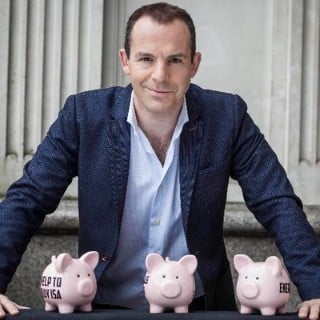Ofgem this morning confirmed its much flagged intention to move from half-yearly to three-monthly reviews of domestic energy tariffs, in a revamp of the default tariff cap.
The regulator’s change was condemned on national radio as the worst of all possible worlds, and a ‘disaster’ by an infuriated Martin Lewis, ITV’s Money-Saving Expert, pictured.
Speaking on LBC, the consumer champion apologised for swearing at Ofgem staff during representations made over the new deal.
Nominally today’s announcement remains a consultation, with the public invited to comment before 14 June. But its ‘minded-to’ status marks it out as the watchdog’s strong intention.
Under new arrangements announced this morning, the late-summer calculations already predicted to add another £600 to home energy charges from October, will be followed in January by new figures based on the regulator’s calculations. Falls, probably steep, and not rises, are anticipated by traders and energy economists, over at least winter 2022’s rounds.
Ofgem boss Jonathan Brierley carefully positioned today’s ‘minded-to’ changes as enabling consumers to reap the benefits of falling wholesale prices closer to when suppliers benefit.
But industry observers note that at least two further rounds of price cap calculations are all expected to see double-digit rises in the cap, increasing fuel poverty. They also recall suppliers’ repeated lethargy under the old system in relaxing retail tariffs.
Eight months ago, premier Johnson lied when he described surging prices of gas on wholesale energy markets as a ‘temporary problem’. Analysts on the contrary see the crisis as lasting well in to 2023, if not longer.
Campaigners at the End Fuel Poverty Coalition say bills capped at just under £2,000 since April may already have pushed 6 million homes into fuel poverty. Further rises in the cap to £3,000 from October and onwards could push that figure to 8.5 million households.
Presenting the regulator’s response to the past year’s “unprecedented market conditions”, Brearley pledged: “Our top priority is to protect consumers by ensuring a fair and resilient energy market that works for everyone. Our retail reforms will ensure that consumers are paying a fair price for their energy while ensuring resilience across the sector.
Linguistically execrable
“Today’s proposed change would mean the price cap is more reflective of current market prices and any price falls would be delivered more quickly to consumers. It would also help energy suppliers better predict how much energy they need to purchase for their customers, reducing the risk of further supplier failures, which ultimately pushes up costs for consumers”, Brearley continued.
Martin Lewis’ radio diatribe against Ofgem focussed on multiple concessions he claimed the regulator had made to industry suppliers at the expense of consumers.
Ofgem’s developing stance on the linguistically execrable term known as ‘backwardation’ attracted Lewis’ fiercest anger. This is the accounting mechanism whereby suppliers are recompensed in retail markets for the current cost of an asset carried on suppliers’ balance sheets – in other words, gas or electricity, – whose price is higher than prices trading on wholesale markets.
Lewis told LBC listeners Ofgem’s tweaks to backwardation had all repeatedly favoured energy companies over consumers, and were poorly calculated.
An initial proposal to compensate suppliers’ for 75% of the shortfall between wholesale and retail values of their energy had been increased to 85%, he said. The notice periods energy companies were required to give Ofgem before enacting it had been shortened, Lewis alleged.
Privatised energy firms were now benefitting from restricted competition and heavily regulated tariffs in home supply in the UK. What, Lewis asked rhetorically, were then the benefits of privatisation?
“We have gloriously – in the middle of a cost-of-living crisis – managed to deliver the worst of all possible worlds”, Lewis declared.




